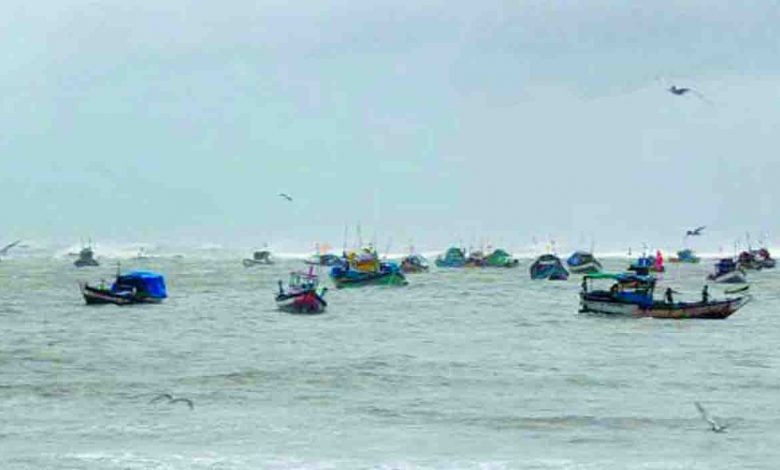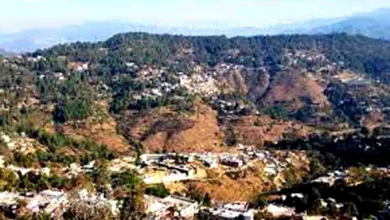Interests of Indian fishermen in danger

Thursday, 25 November 2021 | Ashwani Mahajan
If the problems of overfishing and depleting marine resources continue, it can badly impact the catch by small fishermen and their livelihood
For some time, a round of negotiations has been going on in the WTO, in which an agreement is expected to be made aiming to ending subsidies to curb alleged illegal, unreported and unregulated fishing. These talks are said to be the part of the UN’s Sustainable Development Goals (SDGs), which seek to end subsidies for illegal, unreported and unregulated fishing while ensuring special and differential treatment for developing and least developed countries. But if this agreement is reached, it may adversely affect the livelihood of small fishermen in India and other developing and underdeveloped countries.
It is true that the world is facing the problem of overfishing and depleting marine resources. If this situation continues, this can impact catch by small fishermen and their livelihood. The idea of the United Nations that overfishing will affect sustainable development is always justified. But the big question is, who is responsible for overfishing in the ocean? At least the small fishermen of India or other developing countries having very low fishing capacity are nowhere to blame for this.
Fishing is done in two ways. One, by small fishermen who catch fish in their boats; and second by trawlers and large ships of large companies. Over the past few decades, the evidence of fishing by large ships and trawlers in a mechanized manner by large companies has increased significantly.
Small fishermen in India do not catch fish in the ocean during the rainy season. Know why? Because it is the breeding season for fish. But the big trawlers do not mind fishing during the same period. However, since the big trawlers come under the organized sector, the small fishermen will be considered as illegal, unreported and unregulated; and the subsidy given to them by the governments will end but the big trawlers and ships will continue to be entitled to catch fish from the sea by mechanical processes and also the government subsidies. In such a situation, the livelihood of small fishermen of India and other developing countries will be adversely affected while big companies will benefit at their cost.
Unfortunately, under pressure from developed countries and big corporates, in the WTO, the exercise is going on to push the agreement on this subject. Director General of the World Trade Organization, Dr. Ngozi Okonjo-Iweala, says that completing these negotiations on fisheries subsidy is the top priority of WTO, not only for fisheries but also for the WTO system. And this is being done under the guise of the United Nations Sustainable Development Goals.
It is noteworthy that after the grant of fishing licenses to large trawlers in India in the early 1990s, due to excessive fishing by them, the availability of fish from the sea was getting depleted. As a result, the livelihood of small fishermen was getting adversely affected. At that time there were major agitations to highlight this problem of fishermen, including those led by Swadeshi Jagran Manch and Fr Thomas Kochery, due to which the then government had to stop the renewal of licenses to large trawlers.
After some time, the trawlers again started getting permission. Once again, the demand for re-banning of trawlers by environmentalists is gaining momentum. A committee of the Government of India is working towards regulating these trawlers. Environmentalists say that banning these trawlers is the appropriate solution to the problem of overfishing. Although these trawlers have not been outrightly banned, many states including Kerala and Orissa have been banning trawlers in monsoon (rainy season) on the demand of traditional fishermen so that the breeding of fish is not affected.
It is being argued that the agreement on fishing subsidy will ensure the availability of fish and the protection of marine resources for the future generations. In this regard, if at all any international organization can ban subsidies for fishing, it is the World Trade Organization. The exercise to make rules in this regard has been going on since the year 2001, with the start of Doha Rounds of Negotiations. However, the interesting thing is that though all the remaining provisions of the Doha development Round, under have already been rejected outright by the developed countries, surprisingly, exercise is going on to end the fishing subsidy.
It is true that today 34 percent overfishing is taking place, whereas in 1974 it was only 10 percent. Due to overfishing, the availability of fish is gradually reducing, due to which the livelihood of the people living in the coastal areas is getting adversely affected and their poverty is increasing. Today, about 40 million people in the world depend on the fishing, so the security of their lives is linked with the protection of marine resources.
Although the current negotiations are focused on eliminating subsidies for illegal, unreported and unregulated fishing, these efforts are being strongly opposed by developing countries. Developing countries, including India, believe that ending subsidies on fishing will adversely affect the livelihood and rights of their small fishermen. Although it has been said in the resolution that special and differential treatment for developing and less developed countries is part of the proposals, but it seems that the small fishermen of developing countries will suffer the most from this agreement.
Surprisingly, while everything was stand still during, these talks continued unabated. Therefore, due to restrictions on movements, views of small countries whose missions are not in Geneva could not be appropriately incorporated in this document. For this reason, also, there is anger in this context amongst developing countries. Recently, when the Director General of the World Trade Organization came to India, India had clearly stated that although due to the irrational subsidies given by various countries for fishing, India’s small fishermen have been suffering the most, due to overfishing by developed countries. Therefore, it is necessary to eliminate the subsidy being given to big vessels in these developed countries. Therefore, India has clearly stated in this context, that the draft text is not balanced. In this regard, special treatment will be required for developing countries and this agreement can be balanced only by incorporating India’s suggestions.
India’s demand is that developed countries stop subsidizing fisheries that go beyond their natural geographical boundaries. Industrial fishing countries are not ready to concede this. India wants that the provision of subsidies should continue to protect the interests of its poor and small fishermen. There is no illegal, unreported and unregulated fishing in India. India maintains that since the creation of the WTO, developed countries received special concessions, and their agricultural subsidies continued unabated, while the rights of developing countries were restricted. That mistake should not be repeated in this agreement on fisheries subsidies.
Today, the need of the hour is that India and other developing and least developed countries should face this bigotry of rich countries and there should be no unbalanced and irrational agreement in respect of fisheries subsidies, so that we can protect the interests of our small and poor fishermen.
(The writer is Professor, PGDAV College, University of Delhi. The views expressed are personal.)






